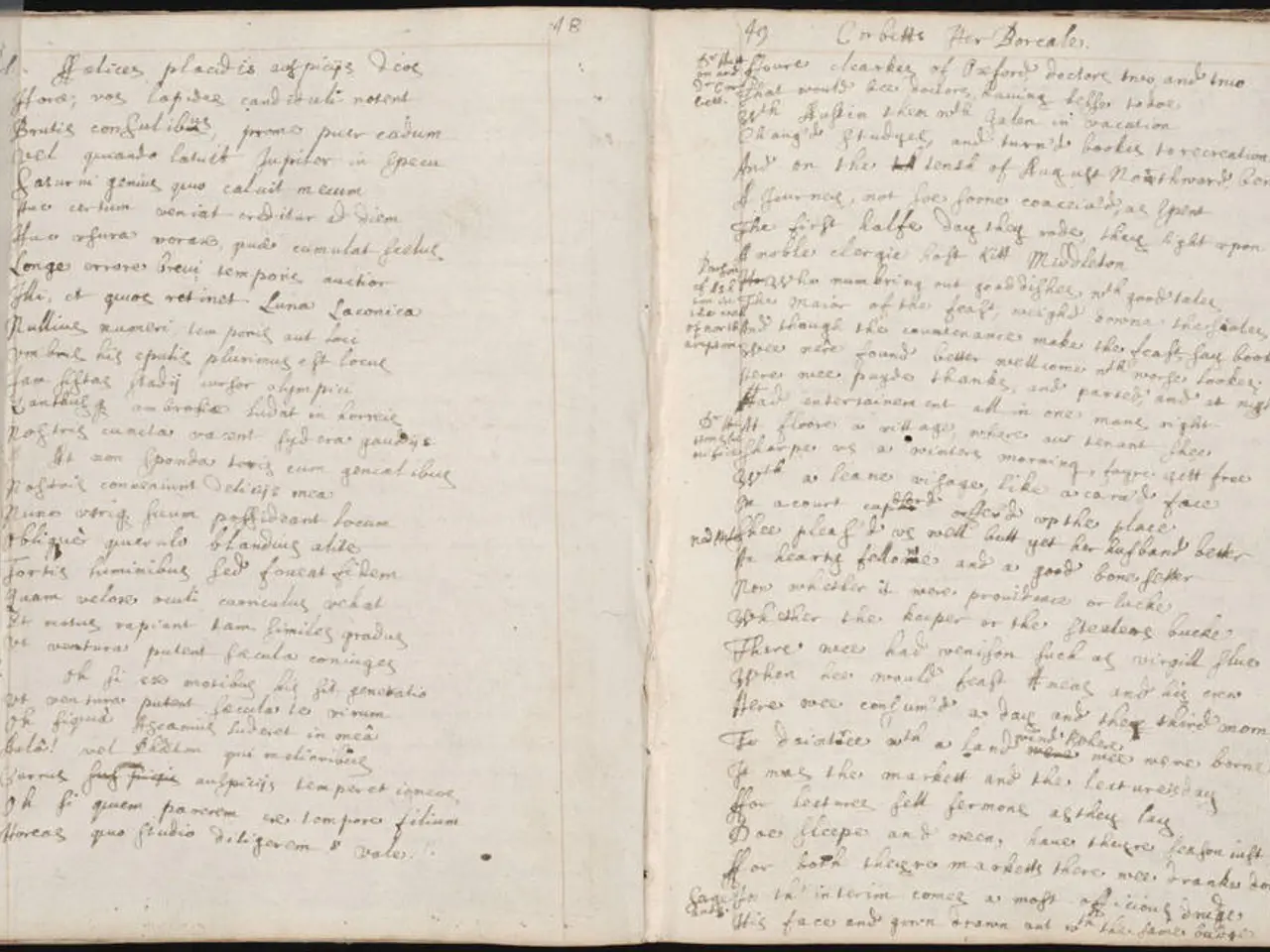Carry Out a Fresh Tale: Simply Handle the Penning
In the face of personal difficulties, maintaining a writing habit can seem like an insurmountable task. However, as many writers have discovered, writing can serve as a solace and commitment to oneself during trying times.
The speaker, who was confronted with a personal situation that increased responsibilities and emotional stress, found themselves briefly contemplating giving up writing. But the thought was quickly rejected due to the difficulty they had in establishing their writing habit.
Writing can be a powerful tool for building confidence and finding inspiration in the face of emotional challenges. It can also serve as a motivation to commit more fiercely to writing, as the speaker discovered after a personal disaster. An inner voice told them to "Write like your life depends on it," and they have since written every day for at least 6 days a week for 15 minutes to stay connected to their work.
Writing daily, even during personal obstacles, can lead to significant progress in a project. The speaker was able to write 55 pages of a screenplay in 11 weeks by sticking to this routine.
Strategies for overcoming self-doubt and resistance while maintaining a writing habit during personal difficulties focus on creating low-pressure, manageable routines and emphasizing consistency over perfection.
One key approach is to write for oneself first, removing the pressure to share or publish and focusing on writing as a personal expression or enjoyment. This reduces intimidation and self-doubt.
Setting small, specific, and adjustable goals is also important. Defining clear but flexible goals about when, where, and how long one will write can help build a writing habit and reduce the burden of perfection.
Reducing activation energy by preparing one's writing environment and tools in advance can make starting easier and less mentally taxing. Establishing consistent routines can also help signal to the brain that it is writing time, reducing resistance.
Planning writing sessions ahead and using reminders and checklists can help keep motivation and tracking on point without relying solely on willpower during difficult times.
Being compassionate and flexible is also crucial. If one misses a session, tweaking timing, duration, or output expectations rather than abandoning the habit can help prevent resistance from catching one off guard.
Taking care of one's mental and physical energy is also important. Avoiding sacrificing sleep or rest is essential, as writing well depends on brain freshness.
Inertia, a tendency to remain unchanged, can be both beneficial (in maintaining writing habits) and detrimental (in causing a standstill when writing is stopped). Having a plan for returning to writing after a break can help prevent resistance from catching one off guard.
Writing during life's bumps in the road is encouraged, as Steven Pressfield's wisdom about writing during personal crises has been personally rediscovered by the speaker. The inner resistance barometer can creep up over the threshold, leading to procrastination without notice.
Personal difficulties, such as the death of a loved one, a frightening medical diagnosis, a betrayal from a spouse, or some other heartbreak, can challenge one's commitment to writing. Taking time off from writing to rest and play can be beneficial, but it is important to have a plan for getting back on track.
In conclusion, maintaining a writing habit during personal difficulties requires a combination of strategies that lighten the burden, emphasize habit formation over output, and foster a forgiving environment for growth through personal challenges. Writing can be a powerful tool for coping with and overcoming personal difficulties, and the benefits of maintaining a writing habit far outweigh the challenges.
References:
- King, S. (2014). On Writing: A Memoir of the Craft. Scribner.
- Pressfield, S. (2002). The War of Art. Penguin Books.
- Adler, M. (2013). The War Against Writing: How to Defeat Resistance and Write Your Book. Penguin Books.
- Sylwester, R. (2014). How to Write a Book in 30 Days: The Revolutionary New Plan to Achieve Your Writing Goals. Adams Media.
- Forgey, D. (2015). The Writer's Practice: Building Confidence in Your Non-Fiction Writing. Writer's Digest Books.
- A daily writing routine, even during personal struggles, can help one make significant progress in writing a screenplay or any other script, as the speaker found out after a personal disaster.
- To maintain a writing habit during tough times, it's beneficial to focus on achievable and adjustable goals, create a comfortable writing environment, and prioritize consistency over perfection.
- When facing personal difficulties, writing can serve as a powerful tool for personal growth and education-and-self-development, helping individuals cope with and overcome those challenges.




